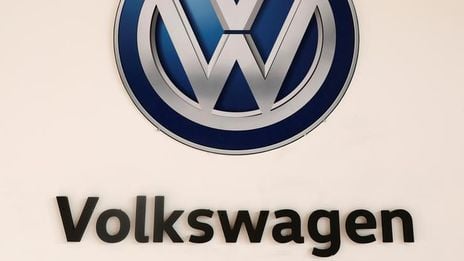New questions also arose over findings by U.S. regulators about the extent of emissions test cheating by the automaker's Audi luxury brand.
The confirmation by prosecutors in the German town of Braunschweig came a day after the company said a probe announced in June, targeting VW brand Chief Executive Herbert Diess and former group Chief Executive Officer Martin Winterkorn, had been widened to include Hans Dieter Poetsch, its former finance chief and now head of the supervisory board.
The Braunschweig investigation focuses on whether Volkswagen in 2015 manipulated markets by delaying the release of information about the financial impact of its emissions test-cheating scandal.
Separately, Germany’s motor vehicle authority KBA said it had been commissioned by the Transport Ministry to seek more information about reports of new software cheats at Audi, a Transport Ministry spokesman told a regular government news conference on Monday, without elaborating.
It was not immediately clear whether this would entail a new round of tests by the KBA of Audi models in question, a source at the ministry said, noting that several types of Audi’s V6 engine had the affected automatic transmission.
German newspaper Bild am Sonntag reported on Sunday that regulators in California had discovered that vehicles sold by Audi had software that improperly reduced emissions of carbon dioxide when the vehicles were undergoing government tests. Previously, U.S. regulators had said certain Audi diesels had software designed to reduce smog-causing emissions generated by diesel engines.
The California Air Resources Board said late Monday it would not comment on whether it had discovered any new Audi emissions issues. Board spokesman Stanley Young said in a statement that if any illegal "defeat devices are discovered, CARB will aggressively pursue the investigation and require the manufacturer to correct the violations at its own expense."
The U.S. Environmental Protection Agency declined to comment.
The Bild report suggested carbon dioxide emissions cheating systems were discovered this summer. In a July 13 letter, CARB told Audi it had "failed to disclose and provide a full description of all defeat devices."
The discovery's potential impact on Volkswagen's efforts to resolve the matter was unclear.
Just last week, a federal judge in the United States said Volkswagen was making substantial progress in talks with the U.S. Justice Department and other regulators over how to fix about 80,000 Volkswagen, Audi and Porsche vehicles equipped with 3.0-liter diesel engines. The judge set a Nov. 30 hearing for the parties to report on those talks.
Last month, U.S. District Judge Charles Breyer approved a $14.7 billion settlement under which Volkswagen has agreed to buy back or repair 475,000 vehicles equipped with four-cylinder diesel engines.
Volkswagen has agreed to spend up to $16.5 billion to settle litigation related to cheating on diesel emissions tests.
The U.S. Department of Justice is continuing an investigation of possible criminal charges in the matter.
(Reporting by Jan Schwartz; Writing by Andreas Cremer; Additional reporting by David Shepardson in Washington; Editing by Christoph Steitz, Tom Brown and Leslie Adler)






